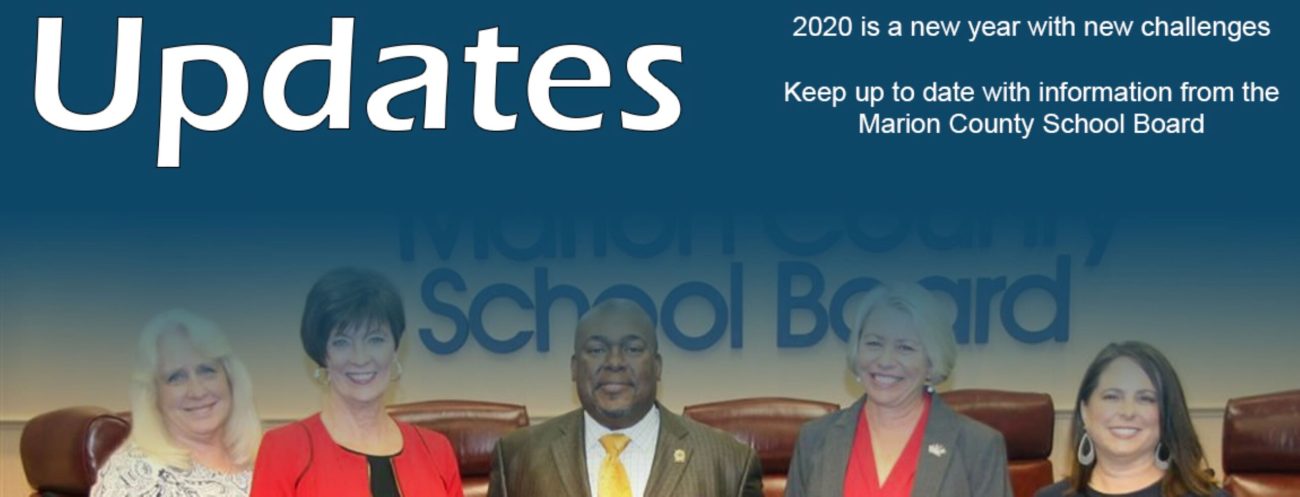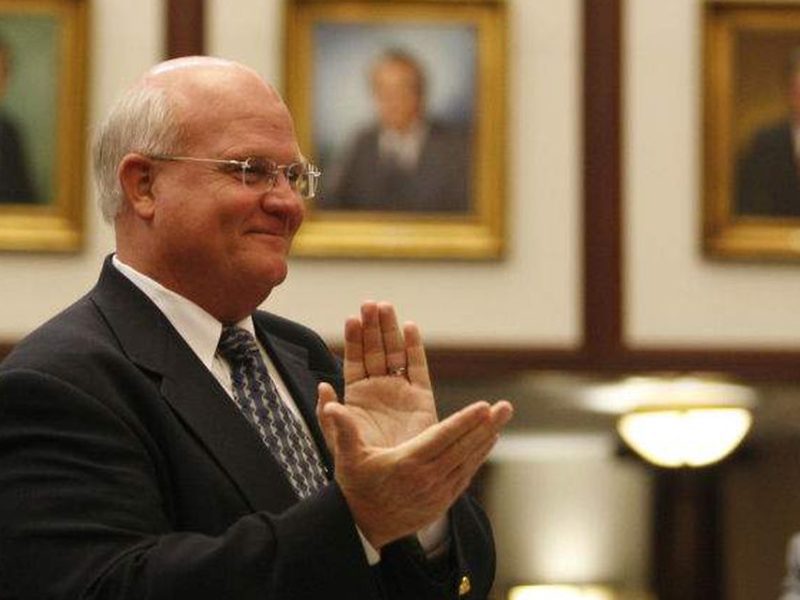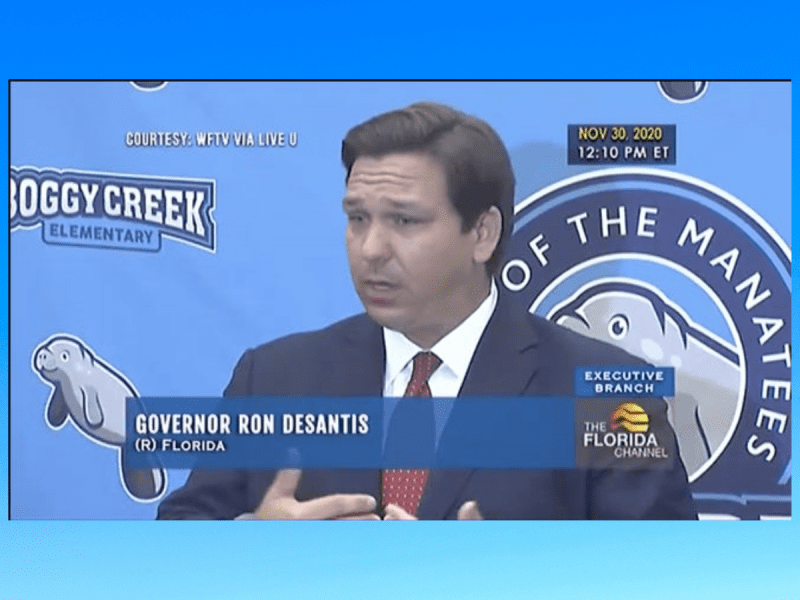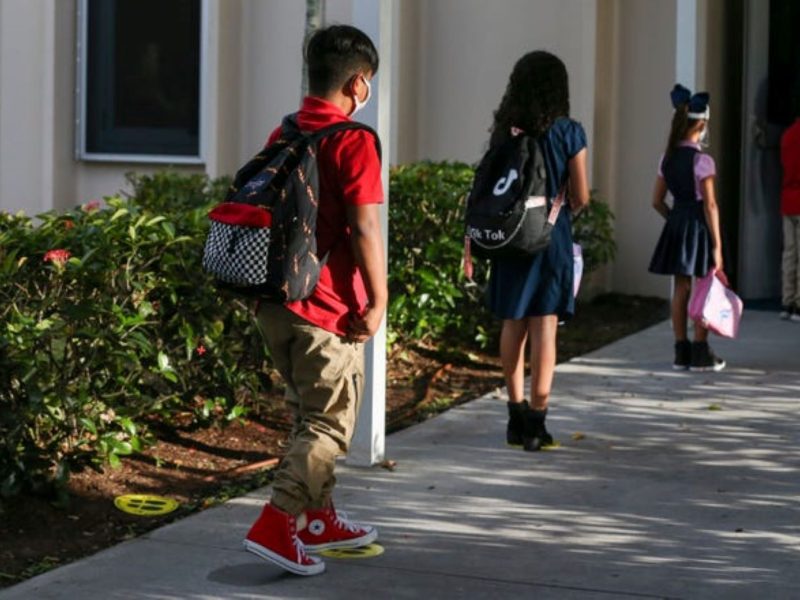‘Difficult, Because It’s New’: Marion County Trying To Cope With Virtual Learning Problems
npr WVFT | by Daniela Sevares | September 29, 2020
Marion County has the largest enrollment among north central Florida school districts, and after a full month of classes, its list of virtual teaching challenges has become just as considerable.
District leadership is working to solve them, but the problems have spilled into public view during recent school board meetings. Among the complaints that have emerged are:
- Several teachers spend their days troubleshooting computer problems, eating away at precious class time that should be focused on instructing students.
- Students with learning disabilities are suffering. In one case, a teacher reportedly assigned students 40 to 60-minute educational YouTube videos to watch instead of instructing them live online.
- Teachers are struggling to hold 41,054 enrolled students equally accountable for their academic integrity, as they cannot see their online students while they are taking their exams.
Perhaps most trying of all, some parents have not been cooperating with their child’s new learning setting.
Parents are acting up
No one could have expected that last problem, the district included.
As the fifth week of school began, it opted to release an “Online Netiquette” video in response to concerning behavior by parents. The video was made by the school board and described tips for parents to follow so that they know what is expected of them and their child on the online learning platform.
At a Sept. 8 school board meeting, Board Chairman Eric Cummings mentioned that some parents weren’t allowing the teacher to properly instruct and are teaching their children how to do it their way instead.
Even more concerning, some parents are appearing in the background of their child’s online classroom dressed inappropriately.
“You have parents that are walking by, they only have on their bra,” he said. “Some kids have never seen a woman in a bra.”

Kevin Christian, the director of public relations and multimedia productions for the district, said the district is working on improving the online environment.
“The whole point of online learning is to make it more convenient for the students and families that are participating in it,” Christian said. “Students want to be there to learn, and we want to help parents help their children succeed in that online classroom.”
About 1,300 people have watched the netiquette video.
How secure are exams?
Testing circumstances are complicating teachers’ attempts at assessing the efficacy of online learning.
At the district’s Sept. 22 school board meeting, Cheryl Lindstrom, a teacher at Belleview Middle School, explained that she has no way of knowing that online testing is going on securely, because she cannot hold her students accountable without seeing them in person.
“Secure online testing is an oxymoron,” she said. “It is not a secure online platform, and I cannot make it so.”
She wonders: “Who’s in the room, how many tabs are open, how many devices are available?”
She said she did not administer one of her class’s tests because she feared administering the test would jeopardize her teaching license, career and pension.
Lindstrom said Belleview Middle School principal Dr. Dion Gary told her he respected her stance.
She said Gary told her the online platform would not jeopardize her career and that teacher accountability “had to do with copying, stealing, or sharing test items, and prompting students with answers or altering the answer sheet.”
Lindstrom asked the board to waive testing and teacher evaluations for this school year.
“We all need grace, students and teachers alike during these difficult times, and it’s the right thing to do” she said.
Board Member Nancy Stacy acknowledged Lindstrom’s concerns.
“I’m sorry that it’s like it is, and this board will do everything we can do,” she said. “We’ll talk about the superintendent about what can we do.”
Unacceptable teaching methods
Rose Jenkins, the mother of an 8th grade student at Howard Middle School, spoke at the same meeting. She said the district’s online platform is not working for her child because she is currently not receiving an engaging education from her teachers.
“She gets a 40, 50 or 60-minute YouTube video, and that is put on,” she said. “The teacher is not present, her camera is off and so is her microphone.”
Jenkin’s daughter is a special needs student, and her mother explained that this instructional approach is not acceptable for her.
“My child feels like she’s being punished because of her illnesses and the reason that she cannot go back to school,” Jenkins said.
Nancy Thrower, the vice chair of the district school board, said the district is considerate of accommodating every student’s educational needs.
“Kids that are identified with special needs and are already struggling, it makes it much more difficult,” she said. “We really want to make sure that our virtual online instruction teachers are getting additional professional development as we identify the challenges now that we’re in our fourth week of school. A huge majority of our teachers are dedicated to doing the right thing.”
Teachers face technical troubles
Terry Kinder, a civics teacher at Belleview Middle School, said she spends more than half her class time on technical issues. She released an open letter to the district on Facebook describing all of the problems she’s faced with online learning before speaking at the district meeting.
“I believe that these technology issues have been the main reason why I currently have 50 percent of my online students with an F and five more with a D,” she said. “That is about 80 students who are currently not succeeding in my state mandated civics class.”
She said that this is not the norm for her class.
“On any given year, I may have four students fail my class for the entire year, not 80,” she said.
Kinder suggested that the district could provide an IT specialist at each school. She said that this specialist could run a live technical support meeting to answer student’s questions during class.
Cummings said that he has monitored teachers and students in classrooms and recognizes the time-consuming technological difficulties.
“I don’t know if we could put an IT team at every school, but we definitely got some IT issues,” he said.
Dr. Diane Gullett, the district’s superintendent, acknowledged Kinder’s complaints and asked her to serve on the task force.
“I recognize your heartfelt message,” she said. “I asked the team to put together a task force, recognizing that this has not, in my opinion, satisfied me that we have fully resolved all the issues, and we still have a lot of work to do.”
Will students fall behind?
Marion County isn’t the only district in Florida facing these types of troubles. On the statewide level, concern is also growing over the integrity of virtual instruction during the COVID-19 pandemic.
The Florida Council of 100 is a non-profit and nonpartisan organization of business leaders that work towards promoting the economic growth of Florida’s citizens.
The council this month published a study based on three years of data from the Florida Department of Education that points out what it calls a “rigor gap,” or a discrepancy “between the grades Florida high school students receive and the mastery of the content to pass EOC exams.”
The study points out that due to COVID-19, there is no data for the end-of-course exams because the students never took them. However, it states, “Florida faces the very real risk of a widening of this rigor gap, causing large groups of students to fall even further behind.”
Based on this study, the state’s next steps in resolving its current issues with online learning are imperative.
The press release accompanying the study included a call-to-action from Florida Education Commissioner Richard Corcoran.
“The COVID-19 pandemic has likely exacerbated gaps in student achievement, so it is imperative that all students, especially low-income students, students with special needs, English language learners, and other struggling students are given the supports and honest learning feedback to achieve their individualized educational dreams,” he wrote.
How the district is moving forward
The district is working on resolving technical issues through a task force.
At the end of the Sept. 22 meeting, Cummings explained that the district can work all of these issues out with the support of all the teachers and staff in the county.
“We will start to make some ends on what we heard tonight, and we’ll get beyond that mountain,” he said. “I think we, as a district, are moving towards trying to make sure whether that student is in person or online, that we are going to be able to provide that equitable instruction. It’s going to be difficult, because it’s new.”






